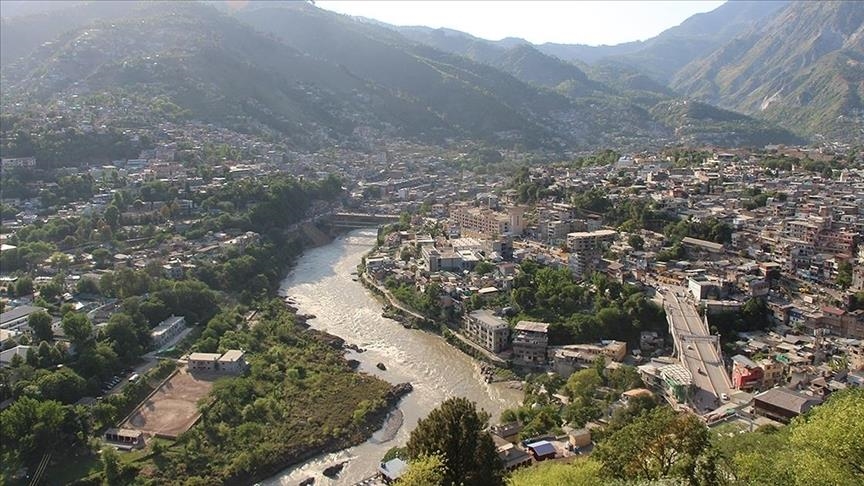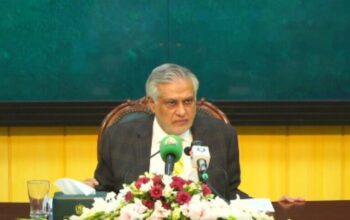By Staff Reporter
ISLAMABAD: The Permanent Court of Arbitration (PCA) in The Hague ruled on Friday that the 65-year-old water-sharing pact has “no provision for unilateral abeyance,” affirming its authority to adjudicate disputes over two hydroelectric projects in the occupied Kashmir.
The Court has ruled that India cannot unilaterally halt the adjudication of a longstanding dispute with Pakistan over the Indus Waters Treaty, a decision that reaffirms the binding nature of international agreements and delivers a legal victory for Pakistan.
The decision, titled “Supplemental Award on the Competence of the Court,” affirms the court’s authority to resolve the conflict, delivering a clear victory for Pakistan and underscoring the binding nature of international agreements.
The court emphasised that India’s April 2025 move to place the IWT in abeyance, following a terror attack in Pahalgam town in occupied Kashmir that killed 26, “does not limit the Court’s competence” and would otherwise cripple the treaty’s binding dispute mechanism.
According to the statement, the court first considered the terms of the IWT, “which do not provide for the unilateral ‘abeyance’ or ‘suspension’ of the Treaty.”
The statement added that the court found that it “was not open to India to take unilateral action to suspend these proceedings…”
“Rather, according to its (IWT) terms, the Treaty continues in force until terminated with the mutual consent of India and Pakistan… The Court found that the terms of the Treaty… do not allow either Party, acting unilaterally, to hold in abeyance or suspend an ongoing dispute settlement process, given that to do so would fundamentally undermine ‘the value and efficacy of the Treaty’s compulsory third-party dispute settlement process’,” the statement explained.
The ruling stems from a decades-old treaty that governs the Indus River system, a critical water source for both nations. Brokered by the World Bank in 1960, the IWT allocates the majority of water from the Indus and its western tributaries to Pakistan, while allowing India limited use, including for run-of-river hydroelectric projects on the Jhelum and Chenab rivers.
Tensions flared when India began constructing the Kishenganga and Ratle hydroelectric projects, which Pakistan argues could disrupt its water supply, a claim India denies, insisting the projects comply with the treaty and are essential for its energy needs.
The dispute escalated in 2016 when Pakistan brought the case before the Court of Arbitration. India, seeking to avoid arbitration, requested that the World Bank appoint a neutral expert to address technical concerns.
The court’s latest ruling dismantles India’s position. It found that India’s actions “have no bearing” on the court’s authority to adjudicate the dispute, emphasizing that once arbitration began in 2016, the court’s jurisdiction was firmly established.
This principle, the court noted, is rooted in customary international law and supported by precedents from the International Court of Justice. The court stressed that allowing one party to withdraw unilaterally would undermine the treaty’s dispute resolution mechanism, which requires mutual consent to terminate under Article XII(4).
The decision also applies to the neutral expert proceedings India initiated, further limiting New Delhi’s attempts to evade scrutiny.
The ruling carries weight beyond the water dispute. The IWT has long been a rare example of cooperation between the two nuclear-armed neighbors, enduring through wars and crises. India’s refusal to engage with the arbitration process threatens this legacy and could set a troubling precedent for other international agreements.
Pakistan noted that the court had affirmed its competence in the light of recent developments, and that unilateral action by India cannot deprive either the court or the Neutral Expert, in the proceedings initiated by India, of their competence to adjudicate the issues before them.
Pakistan looks forward to receiving the court’s award on the First Phase on the Merits in due course following the hearing that was held in Peace Palace in The Hague in July 2024, a statement said.
The high priority, at this point, the statement said, was that India and Pakistan find a way back to a meaningful dialogue, including on the application of the Indus Waters Treaty (IWT).
It recalled that to this end, PM Shehbaz Sharif had stated on June 24, 2025 that Pakistan was “ready to engage in a meaningful dialogue with India on all outstanding issues, including Jammu & Kashmir, water, trade and terrorism.”
Meanwhile, India “categorically rejected” the supplemental award by the Court of Arbitration on its Kishenganga and Ratle hydroelectric projects, saying that it “never recognised” the Court of Arbitration.
“India has never recognised the existence in law of this so-called Court of Arbitration, and India’s position has all along been that the constitution of this so-called arbitral body is in itself a serious breach of the Indus Waters Treaty and consequently any proceedings before this forum and any award or decision taken by it are also for that reason illegal and per se void,” India’s Ministry of External Affairs said.
“Today, the illegal Court of Arbitration, purportedly constituted under the Indus Waters Treaty 1960, albeit in brazen violation of it, has issued what it characterises as a “supplemental award” on its competence concerning the Kishenganga and Ratle hydroelectric projects in the Indian Union Territory of Jammu and Kashmir.”
The MEA described the Court of Arbitration’s latest declarations as a “charade at Pakistan’s behest”.
“Until such time that the Treaty is in abeyance, India is no longer bound to perform any of its obligations under the Treaty. No Court of Arbitration, much less this illegally constituted arbitral body, which has no existence in the eye of law, has the jurisdiction to examine the legality of India’s actions in exercise of its rights as a sovereign,” it said.
Copyright © 2021 Independent Pakistan | All rights reserved




